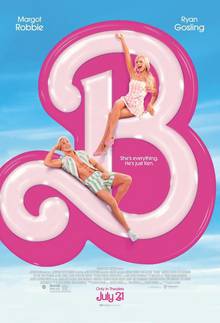With the sound checks done and things set for the gala Concert Night of Techofes 2017, on 6th March, the man with the rich voice, Aalaap Raju, was taking a break before the actual concert began, when we had a chance to talk to him on everything from his college days to his success.
Here’s what he had to say:
GT: To start with, can you brief us on the journey so far?
AR: I am from a musical family. But the journey started during my college days, and in fact, Techofes was one of the cultural festivals that I was part of right from my early days; IIT Saarang being one other such important stage. I started my career very late, when I was around 20. I started playing with bands, and am completely from the band culture.
People started noticing me as a bass player first, which paved way for my entry into the film industry as a bassist. Then, Harris Sir heard my voice demo – I had also started to sing around this time – and that is how it all started.
GT: You are more of a self-taught musician rather than a trained one. How would you compare self-learning with the guru-sishya way of learning?
AR: Any day, I would vouch for the Gurukula way. Because, we (points to the members of his band – Karthik Devaraj (keys), Josh (guitar), Sidharth Nagaraj (drums), Vishnu (flute), Krishna Kishore (percussion) and Shaun (sound console)) are all self-taught and we know the amount of difficulty that comes with it.
GT: How important is ‘Ennamo Yedho’ to Aalaap Raju?
AR: That is the song that gave me recognition as a singer. So, I owe everything to that song and Harris Sir. The most important sequence of my life was around 2010 when ‘Ennamo Yedho’ happened. My singing took off, but more importantly, the ‘playing and singing’ vibe started to come in together. I must say I am fortunate to have done that song.
GT: There are stories that when Harris Jayaraj called you for ‘Ennamo Yedho’, you thought you were going in as a bassist, but later did you know that you were going to sing. Is that true?
AR: Actually, I had sent my audios to Harris Sir via e-mail at one point of time. But even before that, I had started playing bass for him. So, he knew my existence but only as a bass player – I had played for Vaaraayo Vaaraayo from Aadhavan - and not as a singer.
After I had sent my vocal demos, he called me, but yes, I was not too sure. But I was told after going into the studio that Harris Sir wanted to try my voice for ‘Ennamo Yedho’. Harris Sir told me, ‘I did not know you sing’, and then things happened.
GT: Let’s talk about Aalaap Raju as an aspiring musician in his college days. What strikes him apart from Techofes and Saarang?
AR: My BSc days at Loyola were the turning point of my life, because that was when I started getting into music. Before that, I did not have anything to do with music, and always wanted to become a cricketer. So, I left the bat and took the guitar instead (laughs).
GT: You are one of the very few singers who can scale lows effectively, but when it comes to highs, most of your songs are limited to G or G# at the high octaves. Do you make a conscious decision of not reaching highs?
AR: My rendition of Anjana Anjana from ‘Vandhaan Vendraan’ actually scales lots of highs. But when it comes to Harris Sir, his songs are not fully produced; he sits with the singer and decides on the range of the song. For example, there is this song called Endhan Kan Munney from ‘Nanban’, which was initially composed in E Major; it was way too high for my voice, and I found it hard to even start the first line. Then, Sir brought it down to D, and eventually to C.
Composers usually compose songs first, but when they are convinced that a particular voice would suit the tune, they start working on tunes according to the voice.
GT: ‘Ennamo Yedho’, ‘Engeyum Kaadhal’, ‘Akhila Akhila’, ‘Vizhiye Vizhiye’ and so on. All these have a common connect – you and Harris Jayaraj. The duo has produced some evergreen melodies. How does this association always work out?
AR: As I stated earlier, I am fortunate to have sung all these songs. And, Harris Sir was kind enough to have given me the opportunity to sing in not just any song, but all mainstream songs. Even recently, I sang a breezy melody for the Telugu version of ‘Singam 3’, composed by Harris Sir. I do not know how to describe it, but I feel extremely fortunate.
GT: You have worked with different composers, but one song with A R Rahman still eludes you...
AR: One? Why do you want to stop with one? I would love to sing for ARR Sir. To sing for ARR is everyone’s dream, and I am no exception to that. Hopefully, it happens soon, be it bass or vocals.
GT: How has it been to be a part of Mr. L Subramaniam’s international tours as a bassist?
AR: International tours are not just about music. When you are routing with a set of people for 20 to 25 days, you almost become like a family. It is a great learning curve, not just in terms of on-stage experiences, but in the other aspects too. You get to know how disciplined the musicians abroad are.
I am also fortunate to have performed in some rare venues like Latvia, Russia, Sweden, Italy, Spain, etc. – places where I would have never gone, or never ever seen in the map, if not for those tours.
Above all, Subramaniam Sir is an artist whose music is renowned around the globe. So it is always an honour to be a part of his band, bass guitar in hand. You also get to learn things like preparing yourself for a music show, performing sound checks, getting ready for the bus pick-ups to go the airports, acclimatising to the different weather patterns, accustoming yourself to the different time zones and feel fresh for a concert. So it is a whole new experience.
GT: How is your rapport with the fellow singers in the field?
AR: It has been great. I think I hold a significant advantage in this regard because even before I started singing, I used to play bass, and it is good to share space not just as a singer but also as a fellow musician.
GT: Given a chance to pick one, will that be bass or vocals?
AR: It should be bass and vocals (laughs). But if I had to choose, I’d go with bass, because I am a bassist who happens to sing, and not the other way round.
The Guindy Times thanks Aalaap Raju and his band for the interview and the concert





